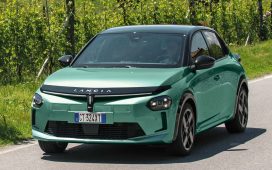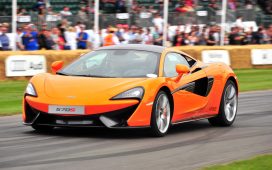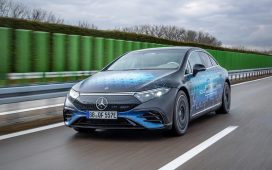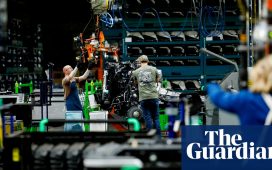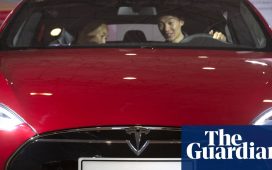The second AA EV Recharge Report for December shows that slow electric car charging rates have dropped by 17 p/kWh compared to November. Despite this, some providers have changed their business model by introducing peak and off-peak rates to help manage demand.
This switch will also ensure power can be provided throughout the day, and prevent people from staying plugged in longer than they need to.
By introducing separate rates for different times of the day, EV drivers need to check what they will be charged as peak rates can be more expensive than ultra-rapid charging.
At the same time, operators run their peak times differently, so drivers should check what rate is applied before plugging in.
The AA analysed 13 chargepoint providers accounting for more than 7,000 charging stations around the UK.
READ MORE: ‘Reincarnation of a classic’ Volkswagen ID Buzz wins Car of the Year
Charging at home using a domestic charger, which charges at a rate of between three and seven kilowatts, is still the cheapest.
It costs 34p per kWh, with a cost of £13.60 when charging an electric car to 80 percent battery level.
Jack Cousens, head of roads policy and recharging for the AA, commented on the data, saying the price differences in some cases were staggering.
He said: “The introduction of peak and off-peak charging mirrors many domestic energy providers’ offering to EV owners.
READ MORE: Drivers warned of major £2,500 fine for not clearing windscreen frost
“We completely understand why this has been introduced as it allows the supply of electricity to remain constant throughout the day while ensuring drivers don’t overstay their welcome.
“However the price gap between the two is staggering, so much like refilling a petrol or diesel car, drivers should check the rates they could be paying before plugging in.
“While pump prices are falling, electricity prices are going in the other direction, but we are hopeful prices could tail off later this year.”
A continued fall in the pump price of petrol now places the running costs around 14.45 p/mile meaning that a petrol combustion engine vehicle is cheaper to run per mile than an EV exclusively using the fastest types of chargers.
However, most EV drivers will only use rapid and ultra-rapid chargers on longer journeys or as a quick top up meaning that electric drivers will save money when comparing overall running costs with a petrol car.
Mr Cousens added: “The Government must keep an eye on prices and act if necessary. Unlike fuel, EV charging already has a regulator in place to monitor public charging rates and they shouldn’t be afraid to step in if prices escalate.”
In comparison, petrol, super unleaded and diesel prices continue to fall as wholesale costs around the world begin to climb down after record-breaking prices last year.
To fill up with a litre of petrol on average will cost 148.59p per litre, although diesel prices remain much higher above £1.70.

